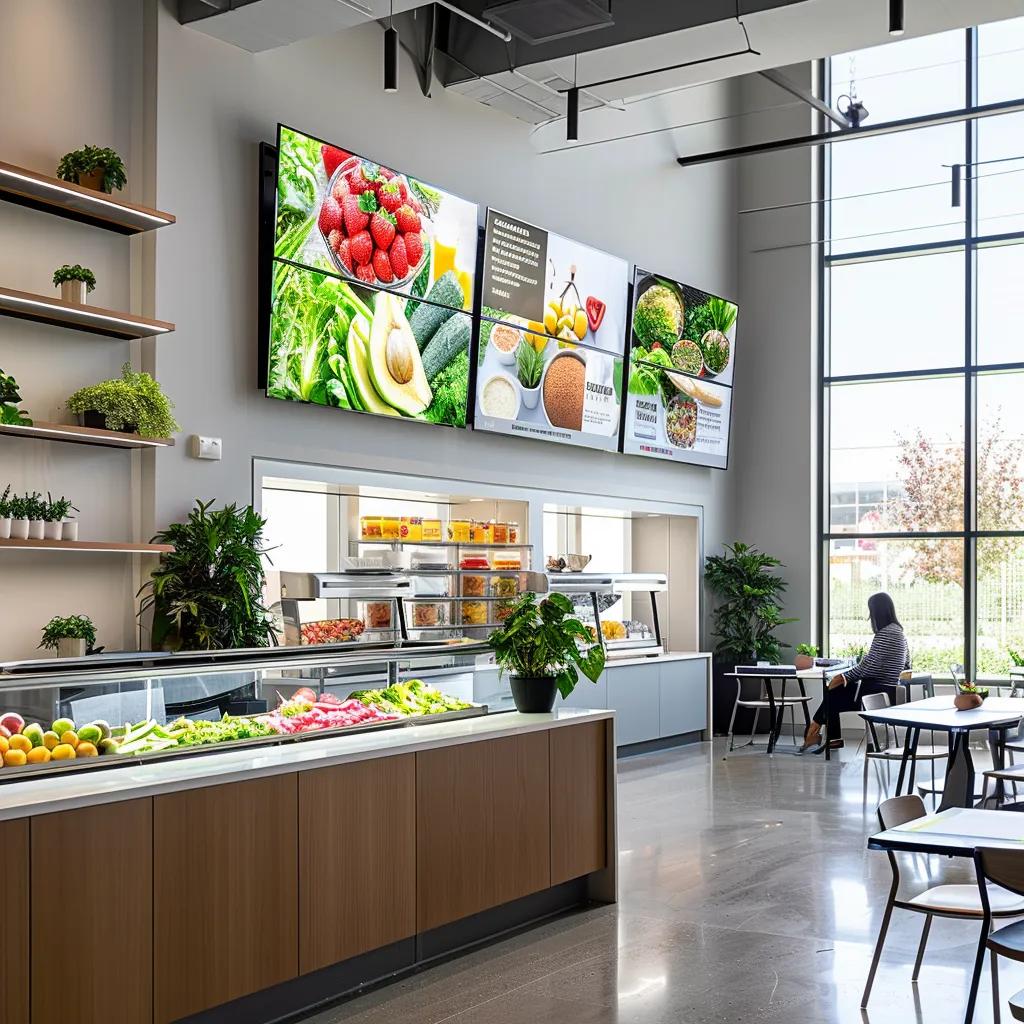
Protein and Carbohydrate Pairings
Pairing protein with smart carbohydrate sources is a cornerstone of a healthy diet. Foods like rotisserie chicken with brown rice, turkey with whole wheat pita, or tofu with lentils deliver balanced nutrients for muscle recovery and endurance. Snacks such as boiled eggs with fruit or a smoothie with whey protein and banana provide both energy and motivation before workouts. These combinations also improve digestion and help stabilize blood sugar, reducing the risk of diabetes.
Adding Flavor Without Excess Calories
Flavor matters for taste and long-term habit building. Using spices, garlic, onion, or vinaigrette keeps meals enjoyable without relying on heavy oils or added sugar. For example, roasted vegetables with olive oil and herbs, or hummus with bell peppers, add variety without excess fat. Flavorful, nutrient-rich meals help avoid boredom, making meal planning more sustainable. At E5Fit’s team, coaches often encourage experimenting with menu variations so meal prep feels exciting rather than repetitive.
Smart Grocery Shopping Strategies for Fitness Meal Planning
A big part of successful Group Meal Planning for Fitness comes from how you approach the grocery store. Creating a shopping list based on recipes, serving size, and nutrient goals saves time and reduces food loss and waste. Organizing by aisle—protein sources, grains, vegetables, fruit, and snacks—helps you stick to a healthy diet while avoiding unnecessary junk food. Stocking the pantry with staples like oats, canned beans, peanut butter, pasta, and whole wheat bread ensures quick options for meal prep.
Smart shopping also means buying in bulk to lower cost per serving. For example, purchasing ground beef, turkey breast, or cottage cheese in larger quantities provides protein-rich meal bases at a better budget ratio. Buying frozen broccoli, spinach, or cauliflower is a great way to cut down on spoilage and support meal prep consistency. Don’t forget hydration: water, smoothies, or sports drinks can keep you energized before or after strength training and aerobic exercise.
At E5Fit’s fitness programs, clients often receive guidance on shopping prep and ingredient swaps that fit lifestyle and goals. With accountability from small group training, the process becomes more motivating, especially when combined with support from a personal trainer.
Organizing Pantry and Refrigerator Inventory
Keeping your kitchen organized ensures ingredients are ready when you need them. Use a pantry system for grains, canned beans, and snack items like granola or pretzels, and organize the refrigerator with labeled containers for vegetables, dairy, and protein. Tracking inventory helps prevent leftovers from being forgotten, reduces food loss, and saves money. A tidy prep space motivates consistency and prevents stress when cooking.
Shopping With Fitness in Mind
Every ingredient you add to your cart should serve your fitness goals. Choose whole wheat tortillas instead of refined flour tortillas, swap chips for popcorn, and include vegetables like cucumbers, bell peppers, and carrots for salads and wraps. Consider healthy fats such as avocado, nuts, or olive oil for recipes that support endurance and cardiovascular health. Being intentional with shopping builds long-term habits that align with weight loss, energy, and muscle hypertrophy goals.
Proven Meal Prep Techniques for Consistency and Results
Effective Group Meal Planning for Fitness is not a trend—it’s a science-backed method used by athletes, trainers, and nutrition experts to optimize results. Structured meal prep reduces stress, increases adherence to a healthy diet, and ensures your body receives the nutrients it needs to fuel strength training, aerobic exercise, and recovery. Research consistently shows that individuals who prep meals in advance maintain better weight control, improved digestion, and a reduced risk of obesity, diabetes, and cardiovascular disease.
Meal prep also supports sustainable eating habits by reinforcing portion control, cutting down on food loss and waste, and minimizing reliance on ultra-processed foods. Whether it’s roasting vegetables, boiling eggs, or preparing overnight oatmeal, these repeatable systems free up mental energy during busy weeks. Athletes who need energy for endurance sessions or clients focused on weight loss both benefit from structured prep.
At E5Fit, our nutrition coaching and semi-private training programs integrate personalized strategies with accountability, ensuring clients don’t just “try” meal prep but succeed with it consistently. Backed by our experienced personal training team, you’ll gain practical systems that make meal prep less overwhelming and more empowering.

Batch Cooking for Efficiency
Batch cooking is one of the most efficient strategies for meal planning. Preparing large portions of chicken breast, quinoa, rice, or roasted vegetables at once allows you to divide food into pre-portioned containers. This eliminates guesswork around serving size and calories while ensuring nutrient balance across meals. Having healthy staples like turkey, salmon, or tofu ready in your refrigerator prevents last-minute food delivery reliance and aligns your eating with fitness performance goals.
Using Tools and Containers to Stay Organized
Meal prep success depends on the right tools. Invest in high-quality glass containers, measuring tools like tablespoons and teaspoons, and kitchen scales to maintain accurate serving sizes and macros.
Organizing meals into labeled sections—breakfast, lunch, dinner, snacks—streamlines eating habits and reduces stress. These methods are especially helpful for clients managing weight loss, blood sugar stability, or cholesterol. At E5Fit’s programs, our trainers often recommend systematic prep tools as part of a complete fitness lifestyle upgrade.
Nutrition Coaching Insights for Smarter Group Meal Planning
The difference between average results and exceptional progress often comes down to expert guidance. With Group Meal Planning for Fitness, having access to structured nutrition coaching and custom nutrition protocols ensures meals are not only convenient but scientifically aligned with your goals. A certified coach can help balance macronutrients—protein, carbohydrates, and fats—while accounting for micronutrients like vitamins and minerals that support energy, endurance, and recovery.
Without guidance, meal prep may lead to imbalances—too much oil or butter, not enough vegetables, or inconsistent calorie intake. Coaches help identify proper serving sizes, create customized recipes, and reduce risk factors like obesity, type 2 diabetes, and high cholesterol. The approach mirrors findings in systematic reviews showing that structured dietary planning improves adherence, lowers disease risk, and enhances long-term lifestyle outcomes.
At E5Fit, clients gain access to integrated support combining personal training, small group personal training, and advanced nutrition strategies. This blend of movement and meal planning ensures fitness progress is measurable, sustainable, and aligned with both performance and health outcomes.
Leveraging Professional Guidance for Results
A personal trainer combined with a nutrition coach creates an unbeatable team. Trainers ensure strength training and aerobic exercise sessions are effective, while nutrition experts align meals to maximize fuel and recovery. For example, pairing whey protein smoothies with bananas post-training enhances muscle hypertrophy, while a meal of lean beef, quinoa, and roasted broccoli optimizes digestion and metabolism. At E5Fit, client success stories highlight how professional oversight keeps people accountable and motivated.
The Role of Education in Long-Term Health
Nutrition coaching isn’t just about “what to eat”—it’s about why. Education empowers clients to make informed choices, whether shopping in the grocery store aisle, managing a pantry, or interpreting serving sizes. Learning how to avoid added sugar, balance fat sources like olive oil and nuts, and incorporate more vegetables like spinach, carrots, and zucchini reduces long-term risks of cardiovascular disease and obesity. Educational blogs such as NASM’s nutrition insights reinforce the same principles we teach in our E5Fit blog, creating a trusted knowledge base that supports lifestyle transformation.
In Group Meal Planning for Fitness, it’s not just about what you eat—it’s about when you eat. Proper meal timing supports endurance, energy, and recovery during both strength training and aerobic exercise. Eating the right balance of protein, carbohydrates, and healthy fats before and after workouts enhances muscle hypertrophy, improves digestion, and supports overall metabolism.
A pre-workout snack—like a banana with almond butter or a smoothie made with whey protein, spinach, and berries—provides fast-digesting energy while reducing the risk of fatigue. Post-workout, meals featuring salmon, quinoa, or roasted sweet potatoes paired with vegetables and olive oil help repair muscle fibers and replenish glycogen. Research-based routines like battle ropes workouts or squat alternatives demand high energy, which can only be sustained with proper fueling.
At E5Fit, clients are guided to combine personalized training sessions with nutrition protocols. Whether it’s 1-on-1 personal training, semi-private programs, or hype sessions, our holistic approach ensures food and exercise work together for optimal results.
Pre-Workout Meals for Energy and Focus
Eating before a workout should supply quick energy without causing digestion issues. Ideal options include oatmeal with fruit, turkey breast on whole wheat toast, or a smoothie with whey protein, banana, and peanut butter. For those focused on endurance, adding foods like rice, quinoa, or lentils ensures glycogen stores are topped off. These meals help stabilize blood sugar, reduce stress, and provide fuel for demanding workouts like mountain climber finishers.
Post-Workout Meals for Recovery and Growth
After training, the body craves protein for muscle repair and carbohydrates for glycogen replenishment. A balanced post-workout meal could be rotisserie chicken with roasted vegetables, tuna with whole grain pasta, or tofu with quinoa and spinach. Adding healthy fats like avocado or olive oil enhances nutrient absorption. Coaches at E5Fit often recommend timing recovery meals within 60 minutes after workouts to maximize results—especially for those focused on weight loss, muscle gain, or long-term lifestyle change.
One of the most overlooked benefits of Group Meal Planning for Fitness is the community aspect. Just as group fitness classes keep people motivated, preparing meals together builds accountability, support, and shared motivation. Eating is social by nature, and when people share recipes, divide cooking tasks, and encourage one another, sticking to a healthy diet becomes easier and more enjoyable.
Community planning also reduces stress and improves mental health by providing structure. It combats unhealthy habits like skipping meals, binge eating junk food, or relying on food delivery.
Instead, participants build positive habits—batch-cooking chicken breast, roasting vegetables, prepping salads, or organizing leftovers in the refrigerator. Evidence shows that environments of support, similar to those found in group exercise programs, dramatically improve long-term adherence to nutrition and training plans.
At E5Fit, we emphasize the role of connection through small group training, private gym memberships, and breathwork classes. These programs combine accountability in workouts with nutrition systems that prevent food loss and waste, helping clients fuel both the body and the mind.
Shared Motivation and Long-Term Success
Meal planning is more sustainable when it’s shared. Friends or training partners can cook together, share prep tools, and hold each other accountable for portion control, serving size, and consistency.
This dynamic mirrors the structure of group workouts where accountability increases motivation. At E5Fit, community-driven programs prove that shared responsibility in both exercise and eating fosters stronger immune systems, healthier weight management, and reduced risk of chronic disease.
The Mental Health Benefits of Group Planning
Meal planning also supports emotional well-being. Reducing stress about “what to eat” each day improves focus, productivity, and overall mental health. Knowing your refrigerator is stocked with prepared meals like salmon with quinoa, spinach salads, or cottage cheese snacks provides a sense of security and balance. Pairing group meal planning with mindful recovery strategies, like NASM’s wall sits or yoga-style breathing, reinforces lifestyle habits that protect against burnout. The result is not just improved fitness, but resilience, confidence, and motivation.
FAQ: Expert Insights on Group Meal Planning for Fitness
Q: How does 1-on-1 Personal Training strengthen meal planning strategies? A: According to performance research, pairing structured training with nutrition support enhances adherence and results. At E5Fit, trainers build workouts that align with calorie needs and macronutrient balance, ensuring every meal directly fuels progress.
Q: Why is Small Group Training effective for accountability in meal planning? A: Evidence shows accountability increases long-term adherence to healthy habits. In small group training, members not only share fitness goals but also extend accountability into group shopping lists, recipe swaps, and batch-cooking sessions.
Q: How does Semi-Private Training reinforce nutrition outcomes? A: Semi-private formats maximize attention from coaches while encouraging peer support. At E5Fit, clients benefit from tailored protocols that combine progressive strength training with portion control and evidence-based nutrition science.
Q: What makes Nutrition Coaching and Custom Nutrition Protocols essential? A: Studies, including systematic reviews, confirm that structured nutrition plans improve adherence, reduce obesity risk, and enhance cardiovascular health. E5Fit’s nutrition coaching applies this science to individualized protocols, balancing protein, carbs, and fats for optimal results.
Q: How do In-Body Scans elevate meal planning precision? A: In-body scans provide clinical-level data on fat mass, lean tissue, and body water. This evidence ensures portion sizes, calorie intake, and macro ratios are precisely aligned with each client’s physiology, a practice supported by leading sports nutrition research.
Q: What are Hype Sessions and why do they matter? A: E5Fit’s Hype Sessions integrate motivation with metabolic conditioning. When paired with targeted nutrition strategies, they significantly improve performance, endurance, and energy availability.
Q: How does a Private Gym Membership impact nutrition success? A: Exclusive environments reduce distractions and reinforce structure. With private gym memberships, E5Fit members combine focused training, accountability, and nutrition tracking to optimize both fitness and dietary adherence.
Q: Why does Breathwork matter in meal planning and digestion? A: Breathwork reduces cortisol, supporting digestion and appetite regulation. Breathwork classes at E5Fit enhance stress management, reducing tendencies toward emotional or binge eating.
Q: Do Custom Online Training Programs include nutrition strategies? A: Yes. Our custom online training programs pair digital coaching with structured meal planning, giving remote clients the same expert accountability as in-person members.
Q: What are the most evidence-based group meal ideas? A: Research supports meals rich in lean proteins, complex carbs, and healthy fats. Examples include: grilled salmon with quinoa and spinach; lentil and vegetable wraps; Greek yogurt with berries; or turkey chili with beans and whole wheat pita.
Q: How does group meal planning accelerate weight loss? A: Group planning enforces calorie control, portion consistency, and nutrient density. Scientific evidence confirms that accountability and structure lead to higher adherence rates and greater fat loss compared to solo planning.
Conclusion: The Evidence-Based Path to Fitness Success
Group Meal Planning for Fitness is more than a convenience—it’s an evidence-based strategy that top athletes, trainers, and nutrition experts rely on to maximize performance and long-term health. Research confirms that structured planning reduces obesity, type 2 diabetes, and cardiovascular disease risk, while optimizing energy, digestion, and recovery.
At E5Fit, we set the standard for integrating personal training with nutrition coaching. Whether it’s semi-private training, hype sessions, or custom online training programs, every service is designed with accountability and precision in mind. Our team of professionals applies proven methods rooted in sports science, ensuring clients don’t just follow a diet but build a sustainable system for life.
Meal planning also drives mental health benefits, reducing stress and building motivation. When combined with community support and expert accountability, the process transforms from a chore into a lifestyle. From prepping salmon and sweet potatoes for dinner, to organizing your pantry to cut food waste, every step reinforces your fitness journey.
If you’re ready to elevate your health with evidence-backed strategies, explore our fitness programs, review client testimonials, and schedule your session today. Your transformation starts not just with workouts, but with the food and systems that fuel them.


